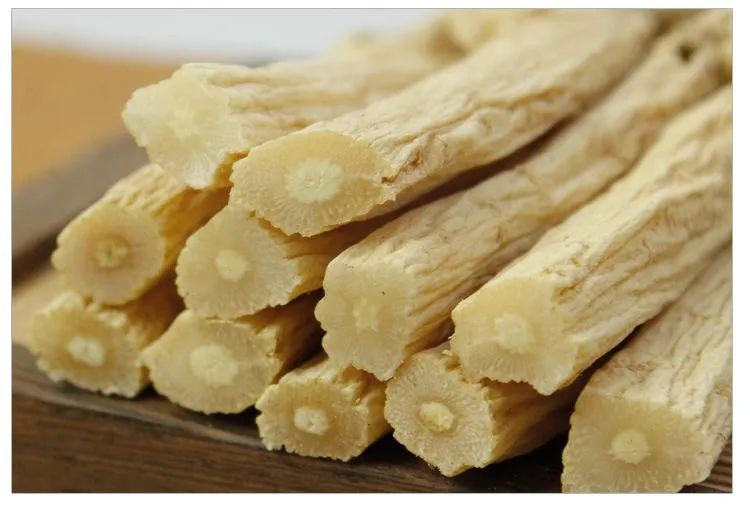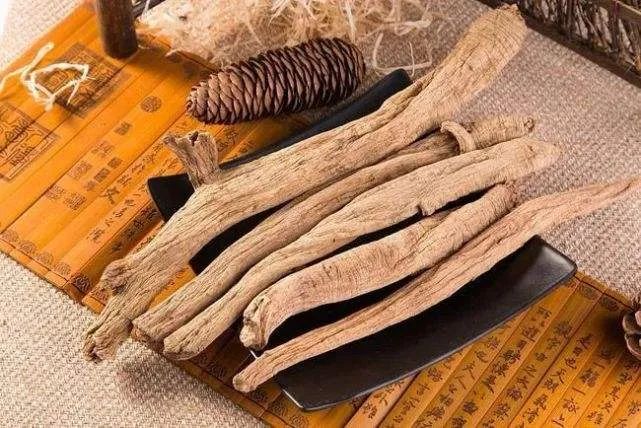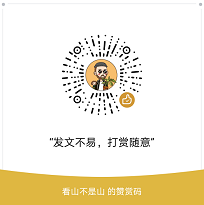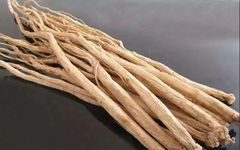
Codonopsis (Dang Shen) and Ginseng (Ren Shen) both have qi-tonifying properties, but Ginseng is much stronger in this regard, while Codonopsis has a milder effect. Traditional Chinese Medicine (TCM) believes that Ginseng can greatly replenish the original qi. Clinically, for patients with qi deficiency who are on the verge of collapse, experiencing confusion, profuse sweating, and a faint pulse, Ginseng decoction is often used to rescue them from critical conditions. Codonopsis, being milder, is not suitable for acute collapse but is primarily used for general qi deficiency syndromes. Let’s explore the nutritional value and usage of Codonopsis!

01
Nutritional Value and Efficacy of Codonopsis
Nutritional Value of Codonopsis
Codonopsis root contains saponins, bitter compounds, volatile oils, proteins, 17 amino acids (including essential amino acids such as lysine, threonine, valine, methionine, leucine, isoleucine, phenylalanine, etc.), vitamins B, vitamin B2, sucrose, inulin, trace alkaloids, and resins.
Efficacy and Functions of Codonopsis
1. Generates Fluids and Quenches Thirst
For individuals such as teachers and vocal performers who experience qi and fluid depletion due to excessive talking, leading to symptoms like shortness of breath, thirst, dry throat, and vexation, the fluid-generating and thirst-quenching properties of Codonopsis are undoubtedly a rare remedy.
2. Lowers Blood Pressure
The blood pressure-lowering effect of Codonopsis is due to its ability to dilate peripheral blood vessels while also inhibiting the pressor effect of adrenaline.
3. Prevents and Treats Gastric Ulcers
Codonopsis regulates gastrointestinal motility and reduces gastric protease activity, thereby inhibiting gastric acid secretion and providing an anti-ulcer effect.
4. Nourishes Blood
Codonopsis can tonify qi and nourish blood, making it suitable for patients with symptoms of shortness of breath, palpitations, fatigue, pale complexion, and dizziness due to qi and blood deficiency.
5. Tonifies the Middle and Benefits Qi
Tonifying the middle and benefiting qi is the primary function of Codonopsis. It is beneficial for individuals with qi deficiency leading to weakness in the limbs, poor appetite, and loose stools.
6. Calms the Mind and Enhances Intelligence
Scientific studies have shown that Codonopsis significantly improves the learning and memory abilities of mice, suggesting that it can calm the mind, improve sleep quality, and enhance learning capabilities in humans.
7. Enhances Immunity
After consuming Codonopsis, individuals generally experience heightened nervous system activity, which enhances immunity due to the activation of splenic lymphocyte DNA and protein synthesis, significantly increasing the production of interleukin-2.

02
Usage and Dosage of Codonopsis
1. According to “Chinese Materia Medica”: Internal use: Decoction, 6-15g; or as a paste, in pills, or powders. For generating fluids and nourishing blood, it is best used fresh; for tonifying the spleen and benefiting the lungs, it is best used roasted.
2. According to the “Chinese Pharmacopoeia”: Decoction, 9-30g.
Prescription Example
Shen Ling Bai Zhu San:
This formula consists of lotus seed flesh, coix seed, cardamom, platycodon, white lentil, white poria, Codonopsis, licorice, white atractylodes, and Chinese yam. In this formula, Codonopsis tonifies the qi of the spleen and stomach, while white atractylodes and poria strengthen the spleen and eliminate dampness, serving as the monarch herbs. Chinese yam, lotus seed flesh, white lentil, and coix seed work together to strengthen the spleen and stop diarrhea, serving as minister herbs. Cardamom is used to transform dampness and stop diarrhea, while platycodon promotes lung qi, making these two serve as assistant herbs. Roasted licorice and jujube tonify the spleen and harmonize the other herbs, serving as the envoy herbs. Together, these herbs work to benefit qi, strengthen the spleen, and eliminate dampness while stopping diarrhea, primarily addressing the syndrome of spleen deficiency with dampness.
This formula is commonly used for gastrointestinal dysfunction, chronic gastritis, chronic colitis, chronic hepatitis, superficial gastritis, chronic nephritis, chronic pulmonary heart disease, and radiation sickness.

【Disclaimer】: This article is sourced from the internet, and copyright belongs to the original author. Please indicate the source when reprinting. Sharing this article is for the purpose of dissemination and learning exchange, and we do not take responsibility for the views expressed in the article. The various dietary therapy methods, medicinal prescriptions, and empirical formulas mentioned are for reference and learning only; non-professionals should not use them blindly! The advertisements in the article are automatically generated by the system and are unrelated to this account. If you have any questions, please leave a message online, and we will handle it as soon as possible. Thank you.


Click “Read the Original“↙ to see more exciting content


